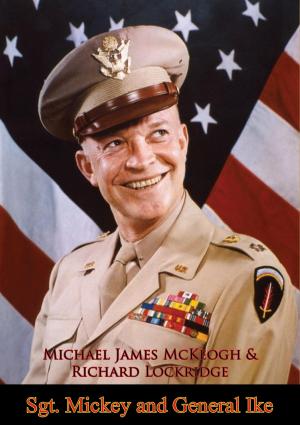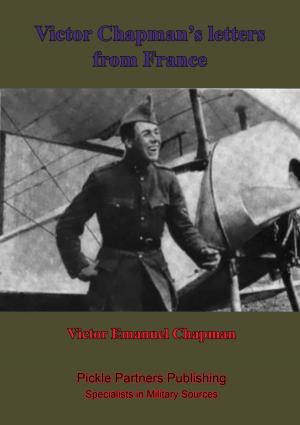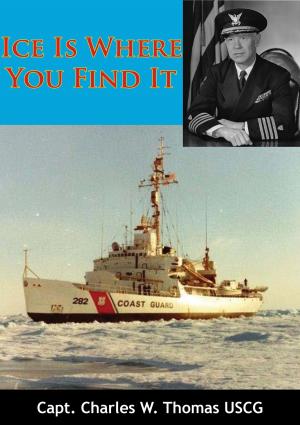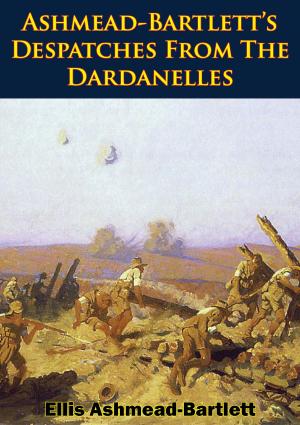A Year Ago; Eye-Witness’s Narrative Of The War From March 20th To July 18th, 1915 [Illustrated Edition]
Nonfiction, History, Military, World War I, Germany, British| Author: | Major-General Ernest D. Swinton, Captain Alan Ian Percy Duke of Northumberland | ISBN: | 9781786255587 |
| Publisher: | Lucknow Books | Publication: | November 6, 2015 |
| Imprint: | Lucknow Books | Language: | English |
| Author: | Major-General Ernest D. Swinton, Captain Alan Ian Percy Duke of Northumberland |
| ISBN: | 9781786255587 |
| Publisher: | Lucknow Books |
| Publication: | November 6, 2015 |
| Imprint: | Lucknow Books |
| Language: | English |
Includes The First World War On The Western Front 1914-1915 Illustrations Pack with 101 maps, plans, and photos.
Major-General Ernest Swinton had already had a long and illustrious career in the British Army before the advent of the First World War in 1914. Appointed as the official war correspondent by the war Minister Lord Kitchener in 1914, his reporting home was the only way for the British people to follow the war as journalists were at that time banned at the front. In these dispatches from the front Swinton told the public of the bloody fighting in Flanders and the heroic efforts of the Allies to stop the German Juggernaut. So even handed and realistic they were brought together in a series of books under the pseudonym “Eyewitness” for further publication. Swinton was not a “château” general by any means and visited the front with dangerous regularity write of the fighting with real authority, often including anecdotes of the ordinary soldiers that he interviewed. The miserable conditions and bloody siege warfare of the trenches left a lasting impression on him and he looked to a scientific solution to the muddy stalemate of the Western Front. He would gain lasting fame as the architect of the “tank” project that was to revolutionize warfare in the First World War and for many years thereafter.
Includes The First World War On The Western Front 1914-1915 Illustrations Pack with 101 maps, plans, and photos.
Major-General Ernest Swinton had already had a long and illustrious career in the British Army before the advent of the First World War in 1914. Appointed as the official war correspondent by the war Minister Lord Kitchener in 1914, his reporting home was the only way for the British people to follow the war as journalists were at that time banned at the front. In these dispatches from the front Swinton told the public of the bloody fighting in Flanders and the heroic efforts of the Allies to stop the German Juggernaut. So even handed and realistic they were brought together in a series of books under the pseudonym “Eyewitness” for further publication. Swinton was not a “château” general by any means and visited the front with dangerous regularity write of the fighting with real authority, often including anecdotes of the ordinary soldiers that he interviewed. The miserable conditions and bloody siege warfare of the trenches left a lasting impression on him and he looked to a scientific solution to the muddy stalemate of the Western Front. He would gain lasting fame as the architect of the “tank” project that was to revolutionize warfare in the First World War and for many years thereafter.
![Cover of the book A Year Ago; Eye-Witness’s Narrative Of The War From March 20th To July 18th, 1915 [Illustrated Edition] by Major-General Ernest D. Swinton, Captain Alan Ian Percy Duke of Northumberland, Lucknow Books](https://www.kuoky.com/images/2015/november/500x500/9781786255587-fHvt_500x.jpg)





![Cover of the book In The Clouds Above Baghdad, Being The Records Of An Air Commander [Illustrated Edition] by Major-General Ernest D. Swinton, Captain Alan Ian Percy Duke of Northumberland](https://www.kuoky.com/images/2013/january/300x300/9781782891123-glAg_300x.jpg)
![Cover of the book The Dardanelles Campaign [Illustrated Edition] by Major-General Ernest D. Swinton, Captain Alan Ian Percy Duke of Northumberland](https://www.kuoky.com/images/2012/april/300x300/9781782890997-ILiM_300x.jpg)







